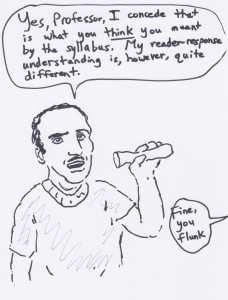What we can know about Lydia in Acts 16?
Lydia and women of Philippi. This is an 8-minute lecture by Acts scholar Craig Keener. For 23 free lectures on Acts, see http://faculty.gordon.edu/hu/bi/ted_hildebrandt/DigitalCourses/00_DigitalBiblicalStudiesCourses.html#Acts_Keener
Traveling to a new land—Genesis 28—29
Before Isaac sends Jacob to Mesopotamia, he blesses Jacob to possess the land of his sojournings (Gen 28:4). More significantly, before Jacob can leave for Mesopotamia, God appears to Jacob and promises him the land on which he lies, and that God will bring him back to this land (28:13-15).
After God speaks to Jacob in his sleep, Jacob sets up a stone pillar and pours a libation on it (28:18-22). Setting up a stone could signify a covenant (31:45) or a memorial (35:20). God’s revelation and Jacob’s devotion frame his departure and return to the promised land. When Jacob returns, God again speaks to Jacob, and he sets up a pillar and again pours a libation over it (35:14). Although the Torah later forbade this familiar practice of setting up sacred pillars (Deut 16:22), Scripture preserves memories of earlier times and reports Jacob setting up this stone pillar as an act of devotion.
Soon after Jacob met God at a stone, he meets Rachel at a stone, and Jacob moves this one also (29:10). Different age groups have different sorts of advantages, but one that characterizes young men is their strength (cf. 1 John 2:14), which they can sometimes display as an act of devotion to someone (e.g., John 20:4; 21:7, 11; contrast 21:18). The shepherd Jacob devotes his strength to God; he also shows it off for Rachel.
Jacob first waters (yashq) Laban’s sheep (29:10) but afterwards kisses (yishaq, a different but similar-sounding word) Rachel (29:11). This would not of course be a long romantic kiss but the sort of kiss appropriate to a greeting from a distant relative, though Jacob seems already smitten. In times of transition, our hearts are most vulnerable to new things.
Rachel runs and tells her father Laban (29:12)—as earlier Jacob’s mother Rebekah (Rachel’s aunt) had run to tell her brother Laban. But this story plays out differently than Rebekah’s story, because Jacob has neither the resources nor the orders (or necessarily even the direct invitation) to return to Canaan immediately. Isaac and Rebekah undoubtedly did wish to keep the brothers apart for awhile (27:45). Jacob will soon find himself trapped in Mesopotamia in a way that makes a journey home difficult. How will God’s promise be fulfilled? The answer unfolds in the following chapters of Genesis.
Craig’s research methods, Acts commentary (podcast)
Paul and the Jerusalem Council
Paul and the Jerusalem Council–Acts 15, and how Galatians 2 fits this. 9-minute lecture by Acts scholar Craig Keener. For 23 free lectures see http://faculty.gordon.edu/hu/bi/ted_hildebrandt/DigitalCourses/00_DigitalBiblicalStudiesCourses.html#Acts_Keener
Why did Isaac send Jacob to Laban without a brideprice?—Genesis 28
Why Jacob apparently travels to Mesopotamia without a brideprice is something of a mystery; my guess is simply an educated one. One movie portrays Jacob getting robbed (by an ally of Esau); that, too, is just a guess, but at least it recognizes the problem.
The promise of land and descendants had cost Abraham many acts of faith over the years; he wanted to ensure its continuance to the next generation. To forestall the danger of Isaac settling back in Mesopotamia, Abraham sent his servant rather than Isaac there, and warned his servant not to take Isaac back there (24:2, 6-8). He also gave a huge brideprice (24:10), making the acquiescence of the bride’s family quite likely (24:30, 35). Even if the prospective bride would not come, however, the servant should not take Isaac back there (24:8); God could provide a wife for Isaac by another means.
By contrast, Rebekah and Isaac send the blessed heir Jacob to Mesopotamia, and he apparently carries no brideprice (29:18). Perhaps earlier conflicts with the Philistines had reduced Isaac’s wealth; perhaps he does not share his father’s deep passion; perhaps he simply trusts that God will take care of it, since Isaac believes the efficacy of his blessings (28:3-4); or perhaps a combination of these factors influenced the lack of substantive bride price.
Whatever the reason, though Isaac clearly does want Jacob to get a wife from Paddan-aram (26:35; 28:6-8), he does not send him with a substantive brideprice. But my best guess is that Isaac is still upset about Jacob’s deception. Jacob has the blessing, and Isaac reaffirms this (28:3-4), as Genesis gladly reports. But Genesis leaves unsaid why Jacob is not equipped with wealth. Esau will continue to build on Isaac’s present prosperity (33:9); Jacob, who cheated to get the eventual inheritance, will have to make his own way for now. By the end of Genesis, however, it will be obvious that God’s blessing pronounced by Isaac is worth far more to Jacob than anything else Isaac could have given him.
Practice for seminary counseling students (cartoon)
Where did Paul get his name? (2.5 minutes)
Acts 13:9: Where did Paul get his name? 2.5-minute clip by Acts scholar Craig Keener.
For 23 free lectures on Acts, see http://faculty.gordon.edu/hu/bi/ted_hildebrandt/DigitalCourses/00_DigitalBiblicalStudiesCourses.html#Acts_Keener
Hosea and the God of the Broken Heart
Most people know me as a New Testament scholar. To keep my reading of Scripture balanced, however, I do most of my devotions from the Old Testament. Indeed, I have encountered God especially deeply in prophetic books such as Hosea and Jeremiah, where God laments over his people who have wandered far from him. God intended for his people to have an intimate relationship with him, a covenant relationship that the Bible compares with marriage.
The full article (for which the above is the first, summary paragraph) appears at: http://www.christianitytoday.com/ct/2016/january-web-only/my-real-life-hosea-story.html
Jacob gets Esau’s blessing—Genesis 27
Rebekah had heard from God that the elder would serve the younger, and thus she urged her (slightly) younger son Jacob to get the blessing. Genesis does not comment directly on the morality of this decision, honoring its outcome but depicting also a world in which everyone was getting snared by deceptions (see http://www.craigkeener.org/was-rebekah-a-positive-character-genesis-27/). Rebekah had a good deal of private influence on her husband (27:46—28:2), but apparently not on this matter. The taste of Esau’s game made Isaac prefer him (25:28); Rebekah preferred Jacob, no doubt especially because of God’s message to her (25:22-23).
Rebekah persuaded her son Jacob to pretend to be his brother Esau and bring her husband Isaac meat before Esau could. How was Isaac fooled by goat kids (27:9) as if they were wild game? Aside from age perhaps dulling his taste as well as his sight, Rebekah fixed them the way that Isaac liked (27:9), perhaps with spices or other ingredients that overwhelmed the flavor. (Esau also fixed meat the same way—27:31.)
The parallel between Esau and Jacob is highlighted by Esau’s claims in 27:31-32 echoing those of Jacob in 27:19. With slightly different wording, each declared, “I am Esau, your firstborn son. Get up and eat of my game, so you may bless me.” The difference is not in their claims, but that Jacob got there first! Now Esau will be Jacob’s servant (27:37), just as, in Noah’s blessing of Shem and Japheth earlier in Genesis, Canaan was to be their servant (9:25-26).
Esau complains that Jacob has taken both his “birthright” and his “blessing” (27:36). His complaint contains a play on Hebrew words for “birthright” (bekorah, firstborn) and “blessing” (berakah). Esau’s anger becomes a catalyst for Jacob’s necessary relocation to Paddan-Aram (Mesopotamia), where he can find more God-fearing wives than in Canaan (26:34-35; 27:42—28:5).


